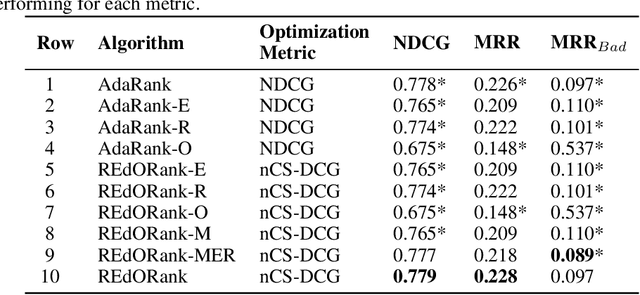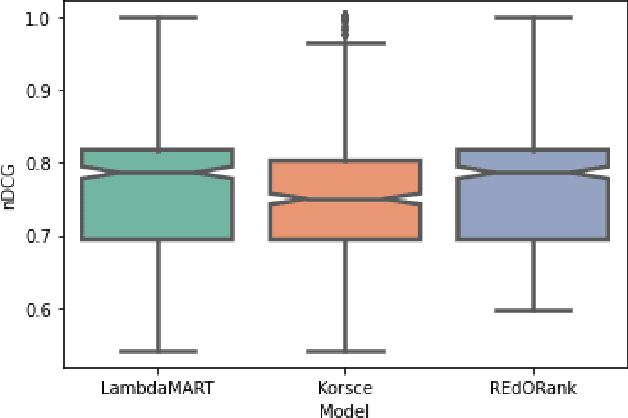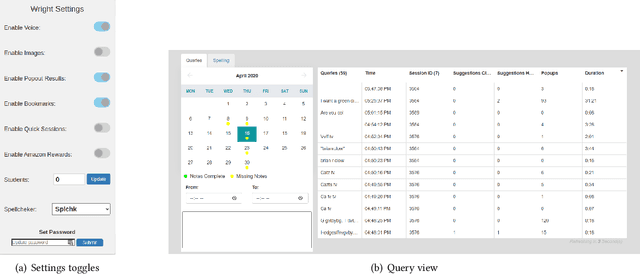Jerry Alan Fails
A Multi-Perspective Learning to Rank Approach to Support Children's Information Seeking in the Classroom
Aug 29, 2023



Abstract:We introduce a novel re-ranking model that aims to augment the functionality of standard search engines to support classroom search activities for children (ages 6 to 11). This model extends the known listwise learning-to-rank framework by balancing risk and reward. Doing so enables the model to prioritize Web resources of high educational alignment, appropriateness, and adequate readability by analyzing the URLs, snippets, and page titles of Web resources retrieved by a given mainstream search engine. Experimental results, including an ablation study and comparisons with existing baselines, showcase the correctness of the proposed model. The outcomes of this work demonstrate the value of considering multiple perspectives inherent to the classroom setting, e.g., educational alignment, readability, and objectionability, when applied to the design of algorithms that can better support children's information discovery.
Conversational Agents and Children: Let Children Learn
Feb 23, 2023Abstract:Using online information discovery as a case study, in this position paper we discuss the need to design, develop, and deploy (conversational) agents that can -- non-intrusively -- guide children in their quest for online resources rather than simply finding resources for them. We argue that agents should "let children learn" and should be built to take on a teacher-facilitator function, allowing children to develop their technical and critical thinking abilities as they interact with varied technology in a broad range of use cases.
CASTing a Net: Supporting Teachers with Search Technology
May 07, 2021
Abstract:Past and current research has typically focused on ensuring that search technology for the classroom serves children. In this paper, we argue for the need to broaden the research focus to include teachers and how search technology can aid them. In particular, we share how furnishing a behind-the-scenes portal for teachers can empower them by providing a window into the spelling, writing, and concept connection skills of their students.
 Add to Chrome
Add to Chrome Add to Firefox
Add to Firefox Add to Edge
Add to Edge